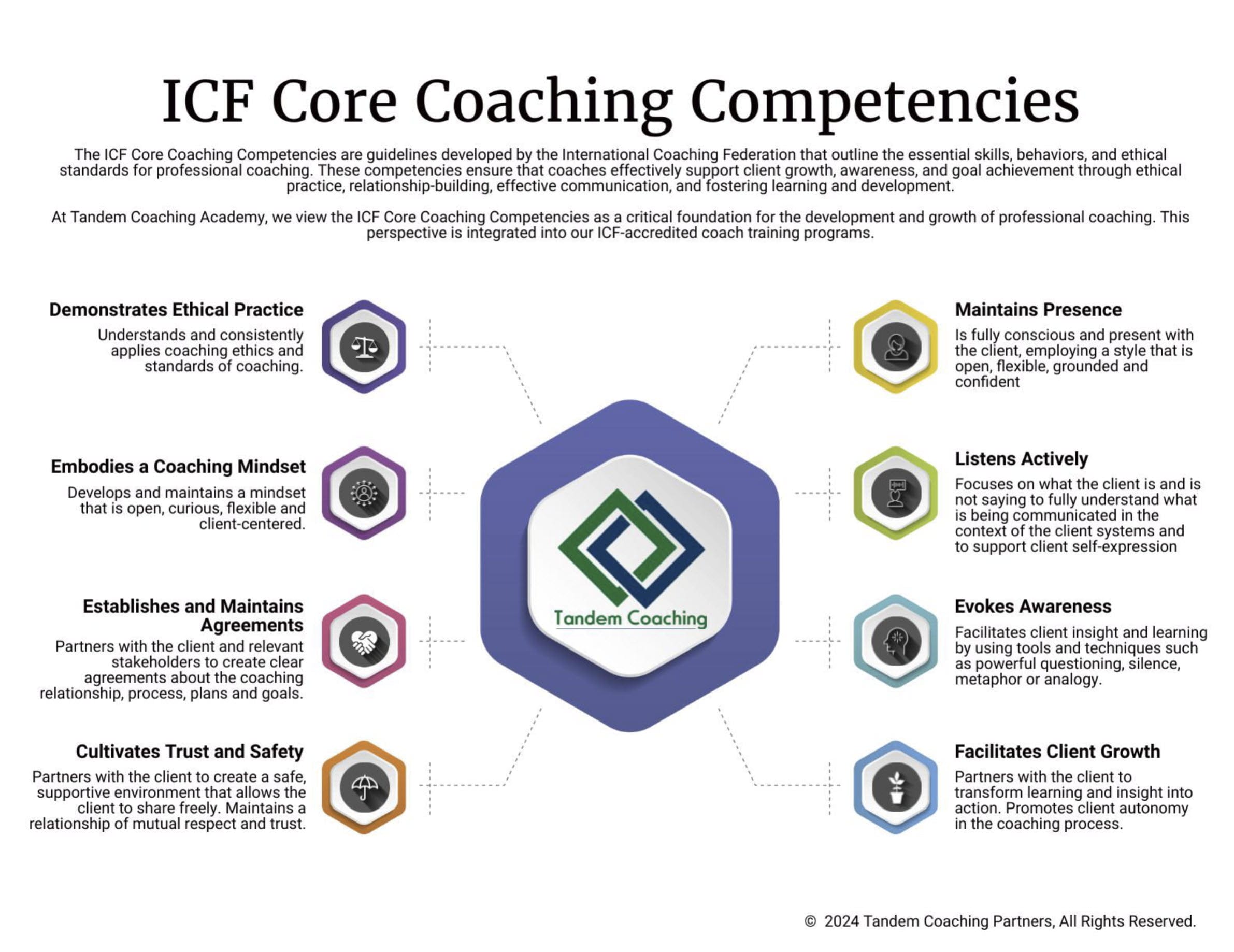Discover how mastering the ICF Core Competencies is essential for coaching excellence, enhancing leadership, and promoting agile transformations in this insightful guide.
Tandem Coaching Blog - Page 7
Professional Coaching
Elevate your coaching by mastering trust-building with insights from Tandem Coaching Partners. Learn to create safe spaces, authentically engage, and maintain confidentiality for lasting client relationships.
Explore the journey to becoming an ACC certified coach with the ICF, including key steps and how the Tandem ICF ACC Accelerate Coaching training program can support your path to certification.
Explore 10 must-reads for coaches seeking growth. This list offers insights into powerful coaching techniques, leadership, and personal development to transform your practice.
Explore five key coaching techniques including mindfulness, Socratic questioning, and strengths-based coaching to enhance client success and personal growth.
Learn key insights for building a successful coaching practice, including defining your niche, enhancing online presence, and providing exceptional coaching experiences.
This guide highlights the importance of active listening in coaching, emphasizing its role in understanding client emotions and narratives, and building trust.
The article outlines five essential skills for aspiring coaches, including active listening, asking powerful questions, building trust, exhibiting emotional intelligence, and remaining non-judgmental, as advised by experienced ICF Master Certified Coaches.
Discover pathways for advancing as an Agile Coach, including ICAgile Bootcamps and ICF coaching. This article guides you through different options, helping choose the right path for professional growth in agile coaching.
This article discusses the evolution of ICF Team Coaching Competencies and the introduction of the Advanced Team Coaching Certificate (ACTC). It highlights how these competencies and the ACTC program can enhance the skills and practices of team coaches.

Add team and organizational coaching skills to your toolset and boost your coaching business

Unlock Your Coaching Potential with Tandem!
Dive into the essence of effective coaching with our exclusive brochure, meticulously crafted to help you master the ICF Core Coaching Competencies.
"*" indicates required fields














